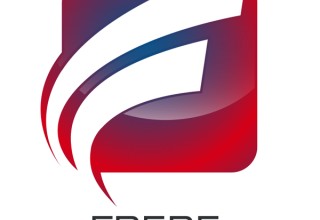The Better Value of Imitation, According to CEO Brandon Frere

PETALUMA, Calif., July 25, 2018 (Newswire.com) - The numbers say it all: 97.8 percent of the value of innovations go to imitators. Innovators get only around 2.2 percent of the value of their revolutionary idea. The list of flamboyantly successful imitators and their dwarfed, lesser-known innovators is impressive. Diners Club innovated, and Visa, Mastercard and American Express imitated. Korvette innovated, and Walmart imitated. White Castle innovated, and McDonald’s imitated. Saehan innovated with its MPman, and Apple imitated with its iPod. Entrepreneur and CEO Brandon Frere values imitation over innovation for the better value it brings.
“Imitation gets a bum rap. It takes as much creativity and energy to truly improve upon an innovation as it does to innovate,” said Frere. “And usually, the product is more efficient and brings more value to the client than the original, which is always the first priority.”
Imitation gets a bum rap. It takes as much creativity and energy to truly improve upon an innovation as it does to innovate. And usually, the product is more efficient and brings more value to the client than the original, which is always the first priority.
Brandon Frere, CEO of Frere Enterprises
Oded Shenkar, author of “Copycats: How Smart Companies Use Imitation to Gain a Strategic Edge,” says that the cost of innovating is high, up to a third more. And while the innovators are sinking investments into their innovations, imitators are working on a version that is based on the market reaction to it. Good imitators don’t wait, Shenkar says, “They actively search for ideas worth copying.”
Imitators are disruptors. And though there are social constraints around copying, highly improved imitations (not cheap knock-offs of popular items) require great amounts of imagination and hard work. Though many CEOs shy away from calling themselves imitators, more and more are embracing the practice. Like the quality revolution that took place in the 1980s when American goods rather suddenly lacked the quality of their imported competitors, the mindsets of organizations need to swiftly embrace imitation as a highly competitive strategy with more value than innovation.
“As Warren Buffet says, there are three types of business models: innovators, imitators and idiots,” said Frere. “Innovators just don’t see enough value for their efforts. Idiots ruin a good thing by being late and out of touch. A good imitator makes something better, something more valuable and this is good for the client, the employee and the company.”
About Frere Enterprises
Brandon Frere is an entrepreneur and businessman who lives in Sonoma County, California. He has designed and created multiple companies to meet the ever-demanding needs of businesses and consumers alike. His company website, www.FrereEnterprises.com, is used as a means to communicate many of the lessons, fundamentals and information he has learned throughout his extensive business and personal endeavors, most recently in advocating on behalf of student loan borrowers nationwide.
As experienced during his own student loan repayment, Mr. Frere found out how difficult it can be to work with federally contracted student loan servicers and the repayment programs designed to help borrowers. Through those efforts, he gained an insider’s look into the repayment process and the motivations behind the inflating student loan debt bubble. His knowledge of the confusing landscape of student loan repayment became a vital theme in his future endeavors, and he now uses those experiences to help guide others through the daunting process of applying for available federal repayment and loan forgiveness programs.
FrereEnterprises.com
Source: Frere Enterprises


